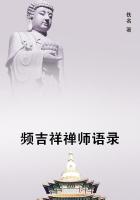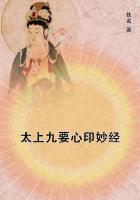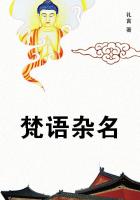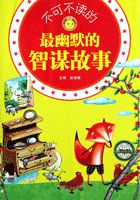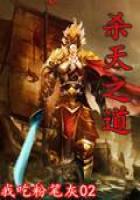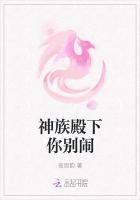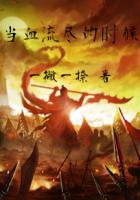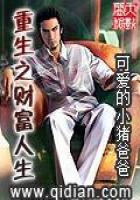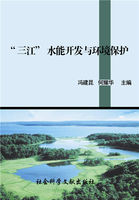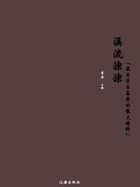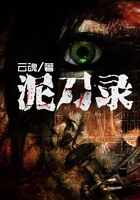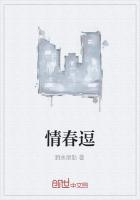Like pilgrims at the final crossroads they straggled apart in the steady grey rain, getting farther and farther away from each other, smaller and smaller, until each disappeared along the appointed path. Stuart had gone a bare half mile when he noticed that a stand of burned timber drew very close to the fire's demarcation line. There was a little wilga as black and crinkled as a pickaninny's mop, and the remains of a great stump standing close to the charred boundary. What he saw was Paddy's horse, sprawled and fused into the trunk of a big gum, and two of Paddy's dogs, little black stiff things with all four limbs poking up like sticks. He got down from his horse, boots sinking ankle deep in mud, and took his rifle from its saddle scabbard. His lips moved, praying, as he picked his slippery way across the sticky coals. Had it not been for the horse and the dogs he might have hoped for a swaggie or some down-and equals out wayfarer caught, trapped. But Paddy was horsed and had five dogs with him; no one on the track rode a horse or had more than one. dog. This was too far inside Drogheda land to think of drovers, or stockmen from Bugela to the west. Farther away were three more incinerated dogs; five altogether, five dogs. He knew he would not find a sixth, nor did he.
And not far from the horse, hidden as he approached by a log, was what had been a man. There could be no mistake. Glistening and shiny in the rain, the black thing lay on its back, and its back was arched like a great bow so that it bent upward in the middle and did not touch the ground except at the buttocks and shoulders. The arms were flung apart and curved at the elbows as if beseeching heaven, the fingers with the flesh dropping off them to reveal charred bones were clawing and grasping at nothing. The legs were splayed apart also but flexed at the knees, and the blob of a head looked up sightless, eyeless at the sky.
For a moment Stuart's clear, all-seeing gaze rested on his father, and saw not the ruined shell but the man, as he had been in life. He pointed his rifle at the sky, fired a shot, reloaded, fired a second shot, reloaded, let off the third. Faintly in the distance he heard one answering report, then, farther off and very faintly, a second answer. It was then he remembered the closer shot would have-come from his mother and sister. They were northwest, he was north. Without waiting the stipulated five minutes, he put another shell in the rifle breech, pointed the gun due south, and fired. A pause to reload, the second shot, reload, the third shot. He put the weapon back on the ground and stood looking south, his head cocked, listening. This time the first answer was from the west, Bob's shot, the second from Jack or Hughie, and the third from his mother. He sighed in relief; he didn't want the women reaching him first.
Thus he didn't see the great wild pig emerge from the trees to the north; he smelled it. As big as a cow, its massive bulk rolled and quivered on short, powerful legs as it drove its head down, raking at the burned wet ground. The shots had disturbed it, and it was in pain. The sparse black hair on one side of its body was singed off and the skin was redly raw; what Stuart smelled as he stared into the south was the delectable odor of bubbled pork skin, just as it is on a roasted joint fresh from the oven and crisp all over the slashed outer husk. Surprised out of the curiously peaceful sorrow he always seemed to have known, his head turned, even as he thought to himself that he must have been here before, that this sodden black place had been etched into some part of his brain on the day of his birth. Stooping, he groped for the rifle, remembering it wasn't loaded. The boar stood perfectly still, its little reddened eyes mad with pain, the great yellow tusks sharp and curving upward in a half circle. Stuart's horse neighed, smelling the beast; the pig's massive head swung to watch it, then lowered for the charge. While its attention was on the horse Stuart saw his only chance, bent quickly for the rifle and snapped the breech open, his other hand in his jacket pocket for a shell. All around the rain was dropping down, muffling other sounds in its own unchanging patter. But the pig heard the bolt slide back, and at the last moment changed the direction of its charge from the horse to Stuart. It was almost upon him when he got one shot off straight into the beast's chest, without slowing it down. The tusks slewed up and sideways, and caught him in the groin. He fell, blood appearing like a faucet turned all the way on and saturating his clothes, spurting over the ground.
Turning awkwardly as it began to feel the bullet, the pig came back to gore him again, faltered, swayed, and tottered. The whole of that fifteen-hundred-pound bulk came down across him, and crushed his face into the tarry mud. For a moment his hands clawed at the ground on either side in a frantic, futile struggle to be free; this then was what he had always known, why he had never hoped or dreamed or planned, only sat and drunk of the living world so deeply there had not been time to grieve for his waiting fate. He thought: Mum, Mum! I can't stay with you, Mum!, even as his heart burst within him.
"I wonder why Stu hasn't fired again?" Meggie asked her mother as they trotted toward the sound of those two first triple volleys, not able to go any faster in the mud, and desperately anxious. "I suppose he decided we'd heard," Fee said. But in the back of her mind she was remembering Stuart's face as they parted in different directions on the search, the way his hand had gone out to clasp hers, the way he had smiled at her. "We can't be far away now," she said, and pushed her mount into a clumsy, sliding canter.
But Jack had got there first, so had Bob, and they headed the women off as they came across the last of the living land toward the place where the bushfire had begun.
"Don't go in, Mum," said Bob as she dismounted. Jack had gone to Meggie, and held her arms.

